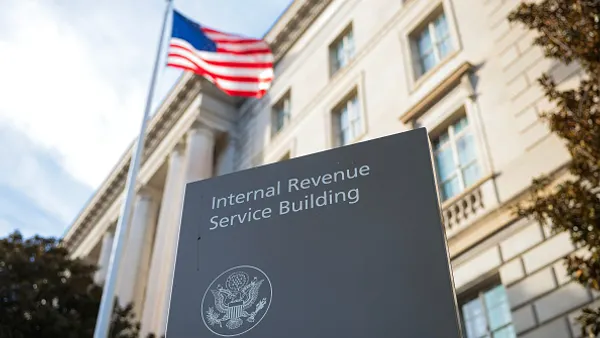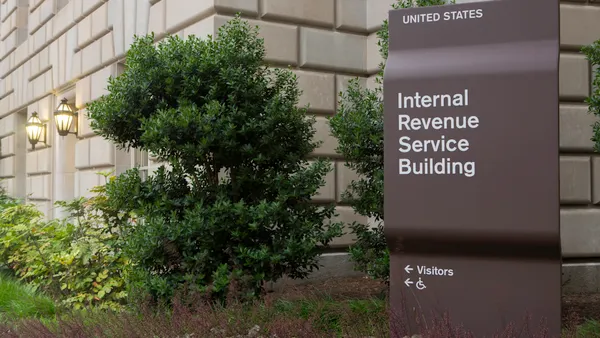Dive Brief:
- Six out of 10 corporate economists predict that the Federal Reserve will trim borrowing costs by a quarter percentage point next month as the labor market softens and tariffs give just a one-time jolt to inflation, Wolters Kluwer said Monday.
- Sixty-four percent of economists at companies ranging from Goldman Sachs to General Motors and Visa to Eaton Corp see inflation, as measured by the core personal consumption expenditures price index, rising to an annual rate of 3.6% in the third quarter and 3.4% in Q4 before cooling to 2.3% at the end of next year, Wolters Kluwer found in a survey.
- “Inflation in the neighborhood of 3.5% is far above the Fed’s target of 2.0%, but public comments of Fed officials suggest that they too expect tariff-related inflation to be temporary,” Mike Moran, an economist at Haver Analytics, said in a statement. “As long as long-term inflation expectations remain contained, policymakers will probably look through the price pressure likely to emerge in the second half and reduce the federal funds rate.”
Dive Insight:
A handful of Fed officials since July have voiced optimism that the highest U.S. tariffs since the 1930s will fuel just short-term price pressures and pose a threat neither to inflation expectations nor to central bank efforts to curb inflation to their long-term 2% goal.
“As I gain even greater confidence that tariffs will not present a persistent shock to inflation, I see that upside risks to price stability have diminished,” Fed Governor Michelle Bowman said Saturday.
“With underlying inflation on a sustained trajectory toward 2%, softness in aggregate demand and signs of fragility in the labor market, I think that we should focus on risks to our employment mandate,” she said in a speech.
Bowman and Fed Governor Christopher Waller noted signs of weakness in the job market and dissented from a Fed decision on July 30 to hold the main interest rate at a range between 4.25% and 4.5% for the fifth straight meeting this year. They both called for a quarter-point cut to the benchmark rate.
Other Fed officials have predicted that price pressures will just temporarily spur inflation but stopped short of favoring imminent reductions in the federal funds rate.
“Tariffs will boost inflation in the near term, but likely not in a persistent way that monetary policy will need to offset,” San Francisco Fed President Mary Daly said Wednesday in a speech.
Still, “inflation is still above our target, which is why interest rates remain modestly restrictive,” Daly said. “We need to finish the job” of bringing down inflation closer to 2%, she said.
St. Louis Fed President Alberto Musalem voiced a similar balanced view on Friday.
“It is likely that most of the impact of tariffs on inflation will be short lived and will fade once the tariffs work themselves from the economy,” Musalem said. “But there’s a reasonable probability that there may be some persistence to inflation.”
Fed Chair Jerome Powell at a press conference on July 30 said he viewed the labor market as “solid” and favored holding the line on inflation by not changing the main interest rate.
“We want inflation to move all the way back to its target,” Powell said, adding that policymakers aim to ensure tariffs do not provoke more than a one-time jolt to prices.
“We want to do that efficiently, though,” he said.
“If you move too soon, you wind up not getting inflation all the way fixed and you have to come back” with an interest rate increase, Powell said. “If you move too late, you might do unnecessary damage to the labor market.”
Traders in futures markets on Monday set 86% odds that policymakers will trim the federal funds rate by a quarter point to a range between 4% and 4.25% after a two-day meeting on Sept. 17, according to the CME FedWatch Tool. They see 42% odds that the main rate will end this year at a range between 3.75% and 4%, or a half percentage point less than now.
Bowman said she anticipates three, quarter-point cuts by the end of 2025, leaving the main rate between 3.5% to 3.75%. Futures traders see 44% odds of such an outcome.














